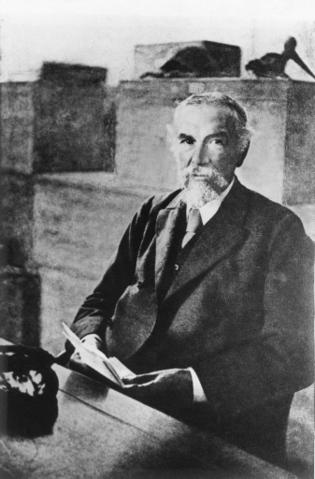
Zone d'identification
Type of entity
Forme autorisée du nom
forme(s) parallèle(s) du nom
Standardized form(s) of name according to other rules
Autre(s) forme(s) du nom
Identifiers for corporate bodies
Description area
Dates d’existence
Historique
Sclater was born at Tangier Park, Wootton St Lawrence, Hampshire, where his father William Lutley Sclater had a country house. George Sclater-Booth, 1st Baron Basing was his elder brother. Philip grew up at Hoddington House where he took an early interest in birds. He was educated in school at Twyford, Winchester College and Corpus Christi, Oxford, where he studied scientific ornithology. In 1851 he began to study law and was admitted as a Fellow of Corpus Christi College. In 1856 he travelled to America and visited Lake Superior and the upper St. Croix River. Sclater wrote about this in his 'Illustrated Travels'. In Philadelphia he met Spencer Baird, John Cassin and Joseph Leidy at the Academy of Natural Sciences. After returning to England, he practiced law for several years and attended meetings of the Zoological Society of London.
In 1858 Sclater published a paper in the Proceedings of the Linnean Society, setting up six zoological regions which he called the Palaeartic, Aethiopina, Indian, Australasian, Neartic and Neotropical, which are still in use. He also developed the theory of Lemuria during 1864 to explain zoological coincidences relating to Madagascar to India.
He was Secretary of the Zoological Society of London for 42 years, from 1860-1902. He was briefly succeeded by his son, before the Council of the Society made a long-term appointment.
In 1874 he became private secretary to his brother George Sclater-Booth, MP. In 1875 he became President of the Biological Section of the British Association for the Advancement of Science, where he joined in 18447 as a member. He was elected as a member to the American Philosophical Society in 1873.
Sclater was the founder and editor of 'The Ibis', the journal of the British Ornithologists' Union. His office at 11 Hanover Square became a meeting place for all naturalists in London.
His collection of birds grew to nine thousand and he transferred them to the British Museum in 1886. At around the same time the museum was augmented by the collections of Gould, Salvin and Godman, Hume and others to become the largest in the world.
Among Sclater's books were 'Exotic Ornithology' (1866-1869), 'Nomenclator Avium' (1873), 'Argentine Ornithology' (1888-1889) and 'The Book of Antelopes' (1894-1900).
In June 1901 he received an honorary doctorate of Science from the University of Oxford.
In 1862 he married Jane Eliza Hunter Blair and they had one daughter and four sons. Their eldest son, William Lutley Sclater was also an ornithologist. Philip Sclater is buried in Odiham Cemetery.
Lieux
Statut légal
Functions, occupations and activities
Mandates/sources of authority
Internal structures/genealogy
Contexte général
Relationships area
Related entity
Identifier of related entity
Category of relationship
Type of relationship
Dates of relationship
Description of relationship
Access points area
Mots-clés - Sujets
Mots-clés - Lieux
Occupations
Note
1859-1902